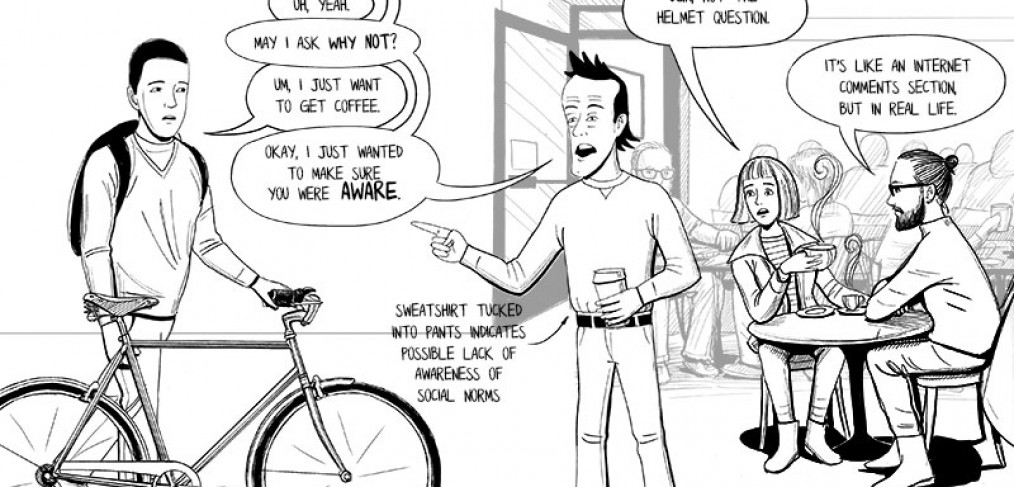
Headcase
The other day I was relaxing at a cafe when I found myself eavesdropping.
Why did he feel the need to speak to the bicyclist and why did he assume the cyclist was somehow ignorant? Would this guy similarly attack other people doing things that he viewed as poor judgement? Or is it just bicyclists?
I’m sick of the helmet hype. It’s time to hype up infrastructure until “cycle track” is in everyone’s vocabulary. I dream of the day this guy will ask the city what’s up with the street design that makes cyclists feel like they need to wear helmets.

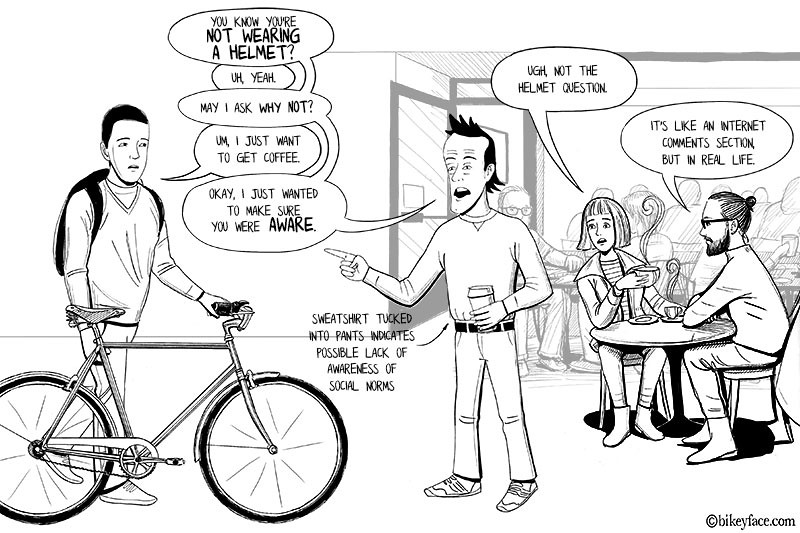
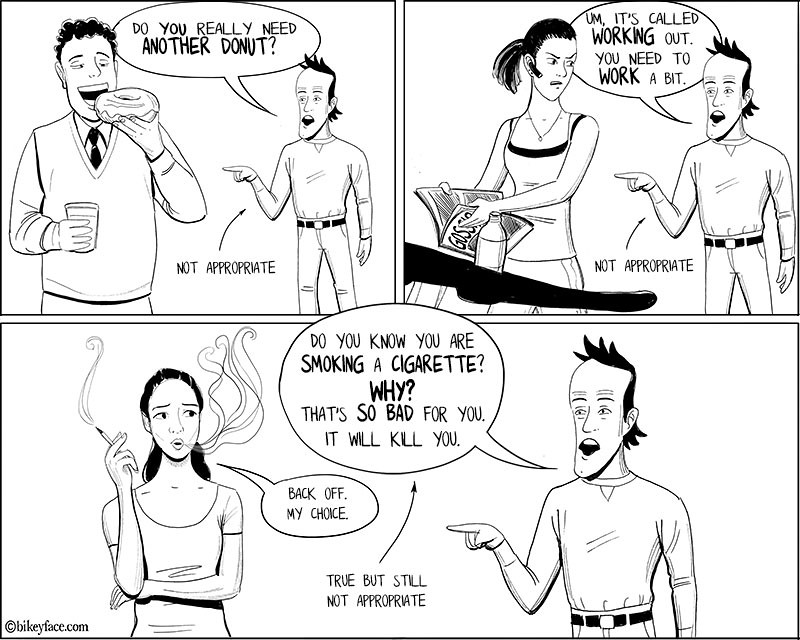

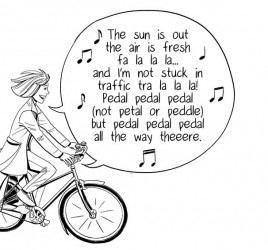
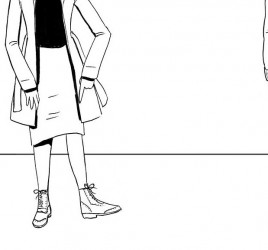
I’ve been getting a feeling this past year or two that in Britain at any rate, cycle helmets have been “found out” at last: that those interested in cycling now realise that their contribution to the safety of cyclists is at best marginal, and that the correct answer is not to try an make collisions safer, but to do as the Dutch and Danes have done over the past four decades and create infrastructure that prevents collisions from happening in the first place.
Unfortunately, for Britain’s large cyclist-hating population led by the Daliy Mail newspaper, cycling safety is all about helmets, which have the double virtue of (i) placing responsiblity for their safety entirely on the shoulders of cyclists themselves (drivers can go on driving just as dangerously as they did before) while (ii) making riding a bicycle more bothersome and complicated, so that hopefully there’ll be fewer people doing it and getting in the way of motor cars. The Mail is famously the newspaper which simultaneously mocks cyclists for wearing foolish-looking plastic hats, and then scolds them for not wearing foolish-looking plastic hats.
Anyway, at least the scales now appear to have fallen from the eyes of cycling campaigners, who are at one in viewing helmets as pretty well the bottom of the list as regards measures to make riding a bicycle a safer and more pleasant activity. You can only speculate that if they’d never existed, then without them to confuse the issue we might have got where we are now a good two decades earlier. In my view cycle helmets and the now-discredited Vehicular Cycling cult have been the two great disasters to befall British cycling in my lifetime.
For committed helmet-wearers, however, I offer this recent invention from Australia, where the things are legally compulsory. The ultimate cycle helmet? I thought at first that it was meant as a joke, but on inspection it turns out to be completely serious.
Bikeyface, can you use your design skills to improve it? Perhaps by including a Mr. Coffee machine?
Sorry, link didn’t work. So here it is:
http://www.bikebiz.com/news/read/sydney-designer-creates-licence-plate-cycle-helmet/017119
Enjoy!
Unfortunately, bike helmets are not designed for the forces involved in a car-bike crash (although they do help sometimes). Something like 83% of bicycle crashes do not involve motor vehicles. Those are the crashes in which a helmet is most likely to save us.
Something like 83% of bicycle crashes do not involve motor vehicles. Those are the crashes in which a helmet is most likely to save us.
Intriguing. So please explain, if you will, why in the Netherlands, where (i) almost no-one wears a helmet and (ii) owning to segregated cycle tracks everywhere that it matters, collisions between cyclists and motor vehicles are extremely rare, cycling head injuries are also very uncommon. If your argument is valid, then you would expect Dutch cyclists to be having lots of the low-speed head-whacks which helmets are actually built to withstand. But somehow there aren’t any: or so few per year that your chances of sustaining one are about on a par with the likelihood of your being struck by lightning or bitten by a snake.
It might, of course, have something to do with the fact that Dutch bicycles are uncommonly difficult to injure yourself while riding: too slow, too stable and the centre of gravity too far back for you to be able to go over the handlebars: you just fall off sideways and land on your hip, elbow and shoulder in that order.
Likewise in their first two years of operation London’s hire-cycles, the “Boris Bikes”, which almost nobody rides wearing a helmet, notched up 143 injuries requiring medical attention in over six million journeys, all but twelve of them classed as minor, and only one of them a head injury, described as “trivial”.
Let’s face it: it’s a cultural preference: like overweight middle-aged Austrian men wearing leather shorts and green jackets with no collar. Picturesque, but not really applicable to other societies.
I support free choice. Check your medical insurance. If you aren’t wearing a helmet, your insurance may not pay for your medical care. Or as I used to tell my motorcycle classes,’ If you have a $ 10 head, wear a $10 helmet. Just put me in your will.
I’ve never heard of such a thing for any US insurance policy, so a reference to support your claim would be a lovely thing.
Perhaps your experience is relevant to motorcycle use — the risk-per-trip of death there is far higher than for a bicycle, and the exercise benefits are far lower (for a bicycle, the exercise benefits are an order of magnitude larger than crash risks — considering all risks of an insurance payout, they’d rather you ride a bicycle without a helmet than not ride a bicycle at all).
It’s curious that nobody ever talks about the fact that hundreds of times more people die of head injuries in car crashes than on a bicycle – and the relatively lower velocity secondary impact against the interior of a car is just the sort of impact against which a helmet would do the most good. So the question that needs to be asked is “car drivers/passengers, where’s YOUR helmet?”